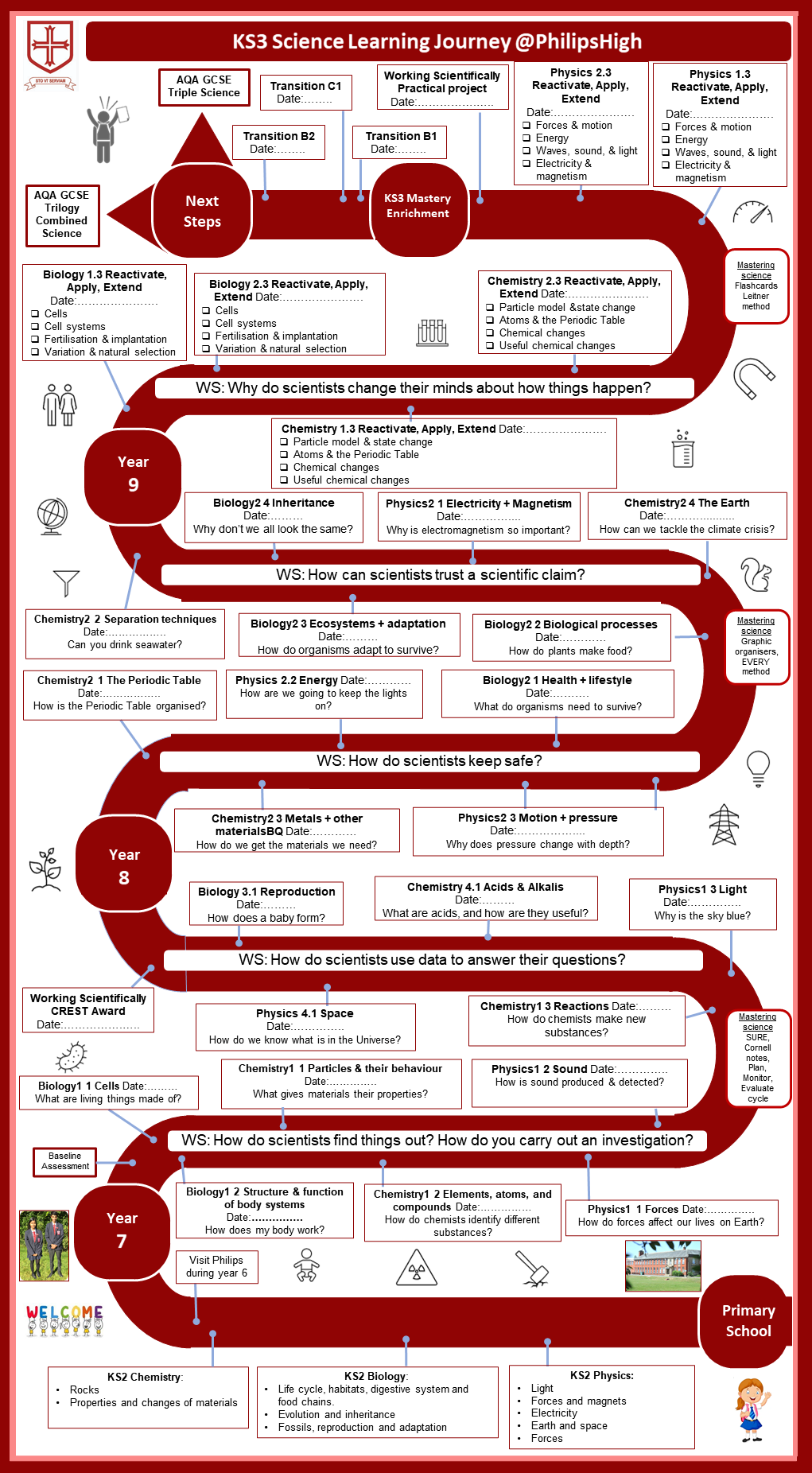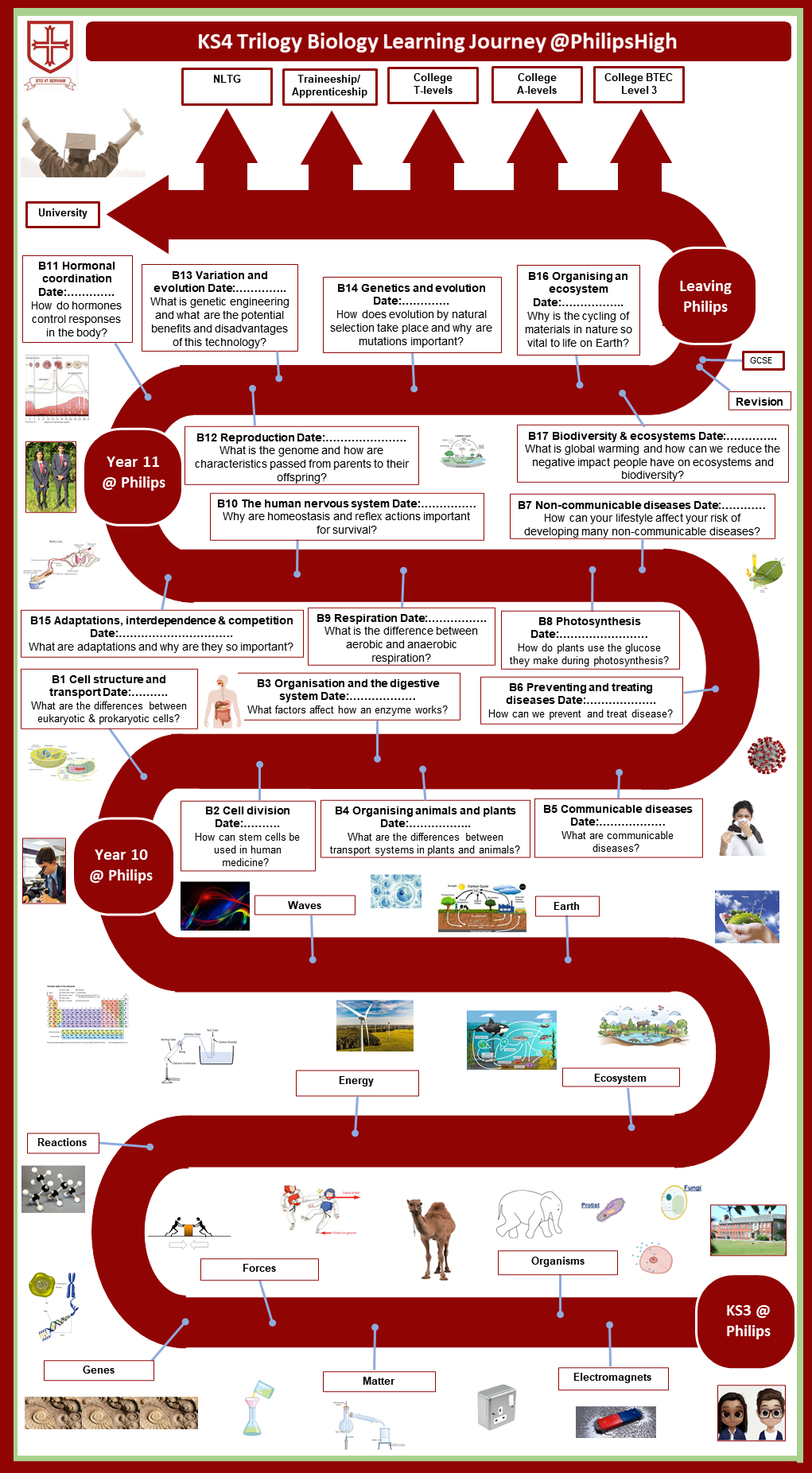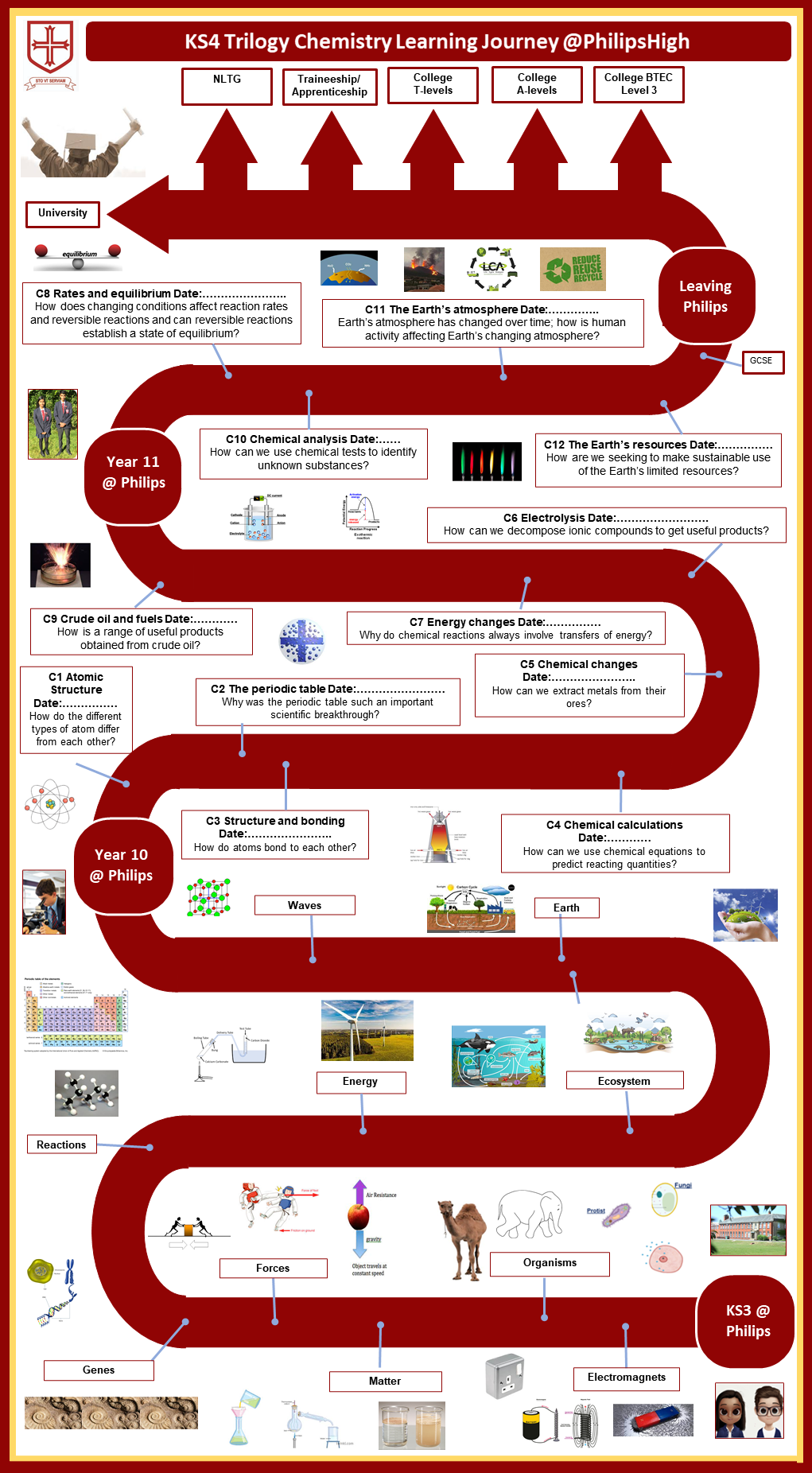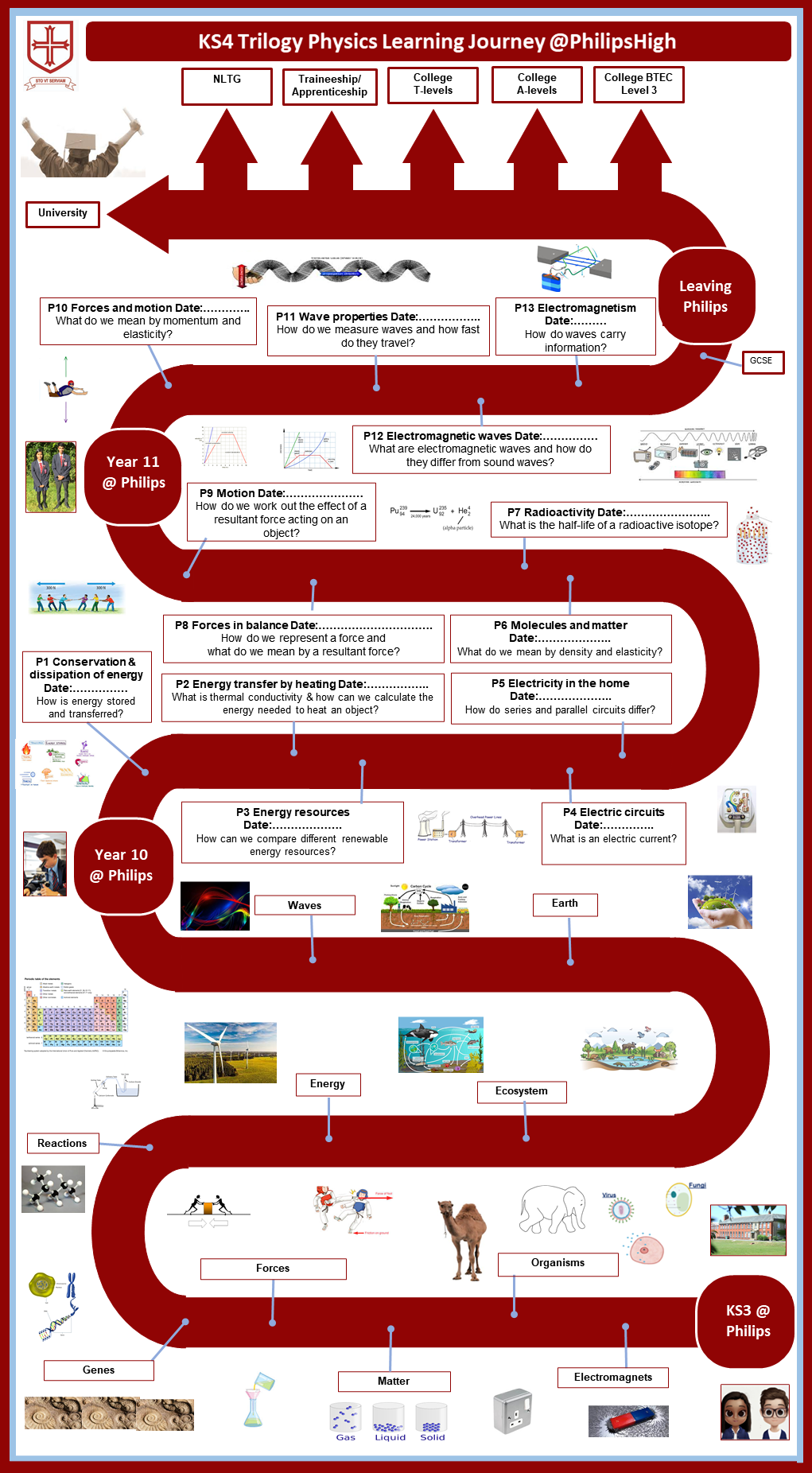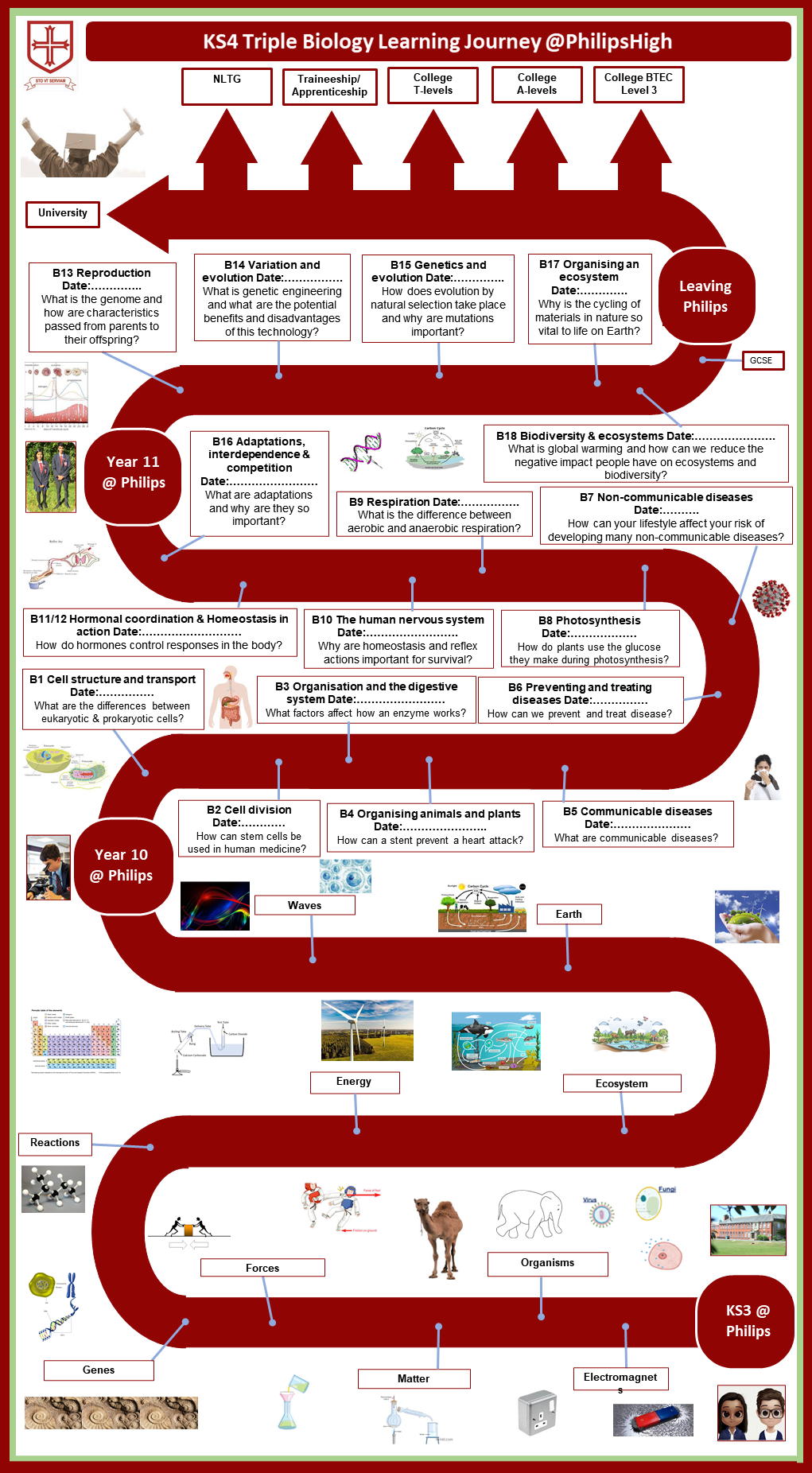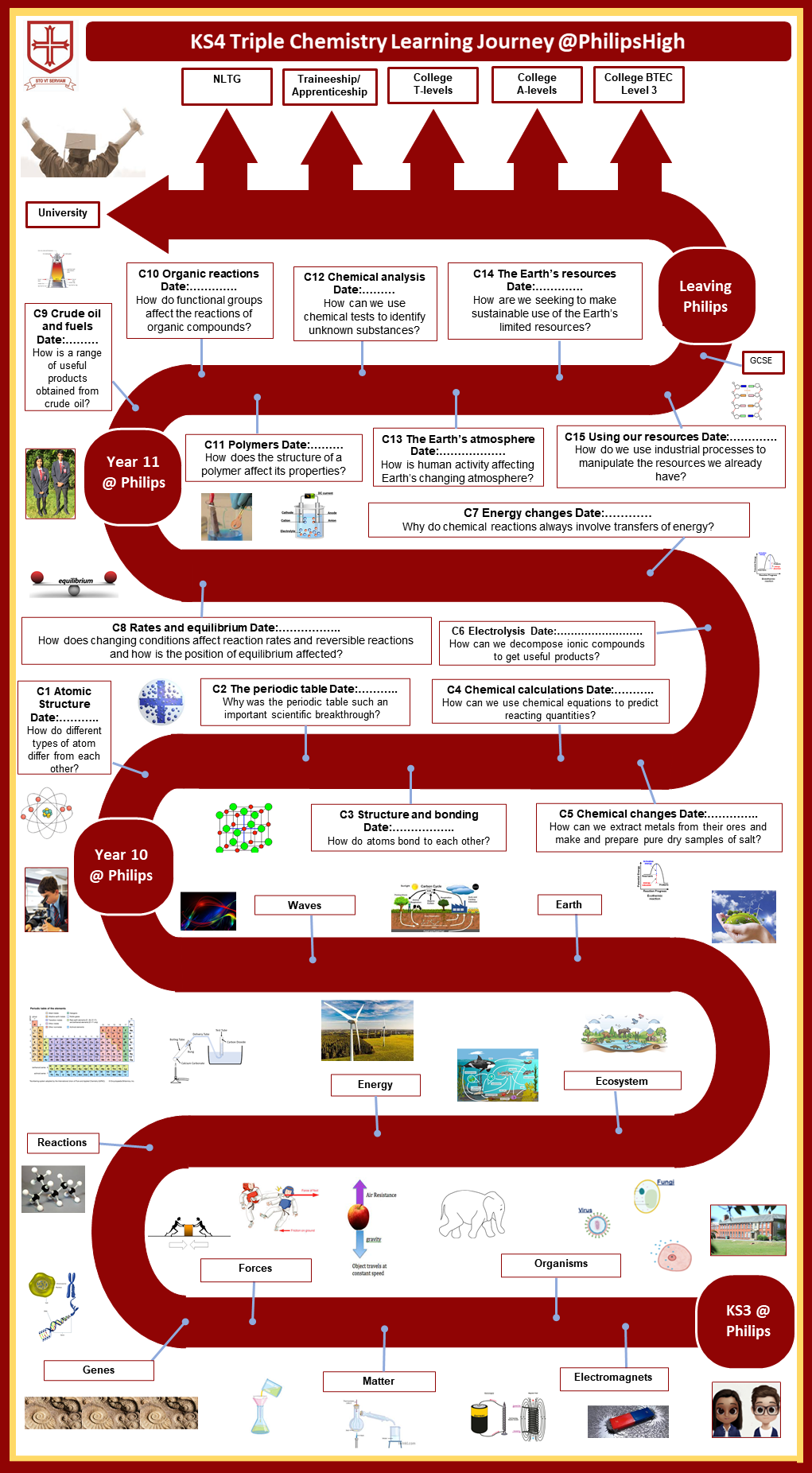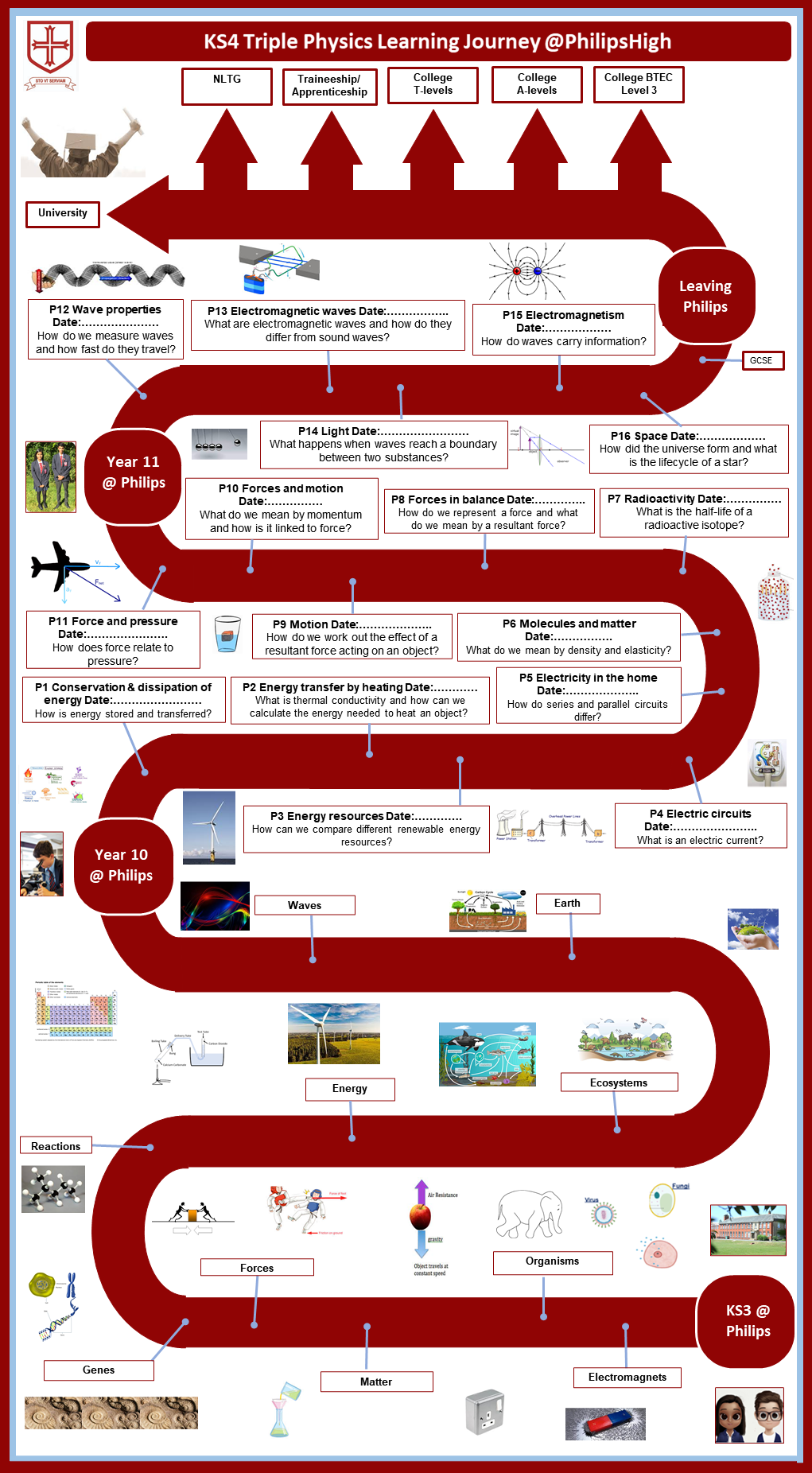Introduction
The science department has eight subject specialist teachers in biology, chemistry and physics, who share six laboratories and a classroom.
The teachers are well supported by a senior science technician.
The National Curriculum for science aims to ensure that all pupils:
- develop scientific knowledge and conceptual understanding through the specific disciplines of biology, chemistry and physics
- develop understanding of the nature, processes and methods of science through different types of science enquiries that help them to answer scientific questions about the world around them
- are equipped with the scientific knowledge required to understand the uses and implications of science, today and for the future
Curriculum intent
The science curriculum is designed to increase our pupils’ knowledge, skills and understanding of the physical world around them and to help them appreciate the relevance of science in their everyday lives.
Our curriculum has been built on the principles of interleaved learning: pupils will revisit and augment previous knowledge on a short, medium and long-term basis. We will also provide students with the skills they need to succeed in life; critical thinking, logical deduction, language skills, mathematical skills and the ability to analyse and interpret data.
The curriculum will also prepare students to achieve their full potential in GCSE science through outstanding teaching, strong discipline, accurate monitoring and meaningful intervention.
The science curriculum is designed to develop personal qualities and cultural capital in all students in a wider context by giving them an understanding of (amongst other things): health issues (e.g. obesity, smoking, cancer treatments); moral issues (e.g. genetic modification); and environmental issues (e.g. nuclear and fossil fuels, global warming).
What do students study in science?
Key stage 3 curriculum overview
Science is taught for one hour six times per fortnight. Biology, chemistry and physics are taught throughout the lessons as thematic topics, with each unit having a focus on either biology, chemistry or physics; even though there are links between each discipline. At KS3, students have ‘spaced learning lessons’ where staff will revisit concepts that students have not understood well, use recall strategies to assist students in remembering more and explain exam techniques so students know what to expect in their termly exams.
Baseline assessments are used in year seven as an informative tool for staff to adapt their lessons, targeting the skills that students in their class need to focus on the most. Baseline assessments in year nine inform staff what skills students need to develop so that they are prepared to start their GCSEs in year 10. Teachers will then adapt their lessons throughout year nine for the students in their class to develop these specific skills.
Each topic is taught using a 'Big Question'. These help students to see relevance of science to their everyday life and events. Students will answer the Big Questions at the end of every unit. Our Big Questions are found on the learning journey. Please take a look.
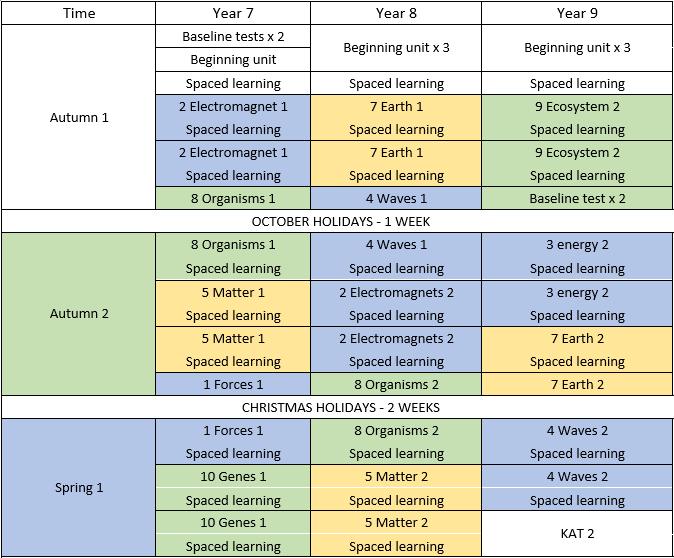
Key stage 4 curriculum overview
Students studying combined science will be awarded two GCSEs at the end of year 11. They will sit six x 1hr 15mins exams. Each GCSE will be made up of a biology, chemistry and physics grade. The two GCSEs are tied and cannot be reduced to one GCSE.
Science is taught for one hour every school day. Biology, chemistry and physics are taught for three lessons per fortnight each. The 10th lesson is a spaced lesson known as science which is used to slow down the curriculum. During ‘science’ staff will revisit concepts that students have not understood well, use recall strategies to assist students in remembering more and explain exam techniques so students know what to expect in their GCSEs.
Each topic is taught using a 'Big Question'. These help students to see relevance of science to their everyday life and makes an additional link to career options in some cases. Students will refer to the Big Questions throughout every unit. Our Big Questions are found on the learning journey. Please take a look.
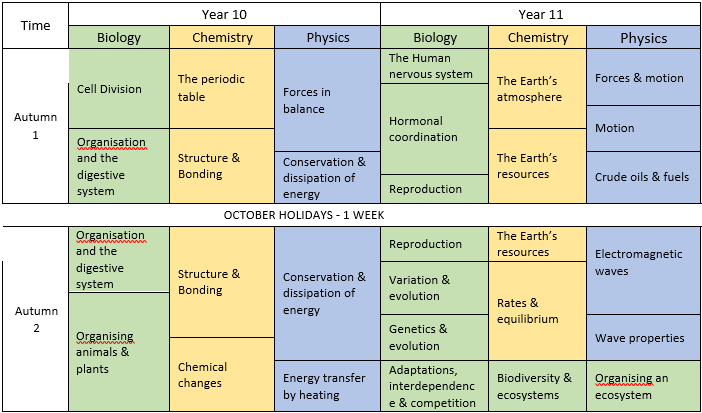
Students studying triple science will be awarded three separate GCSEs at the end of year 11. They will sit six x 1hr 45mins exams. Each GCSE will be separate e.g. the biology GCSE will be made up of only the biology grade. The three GCSEs are not tied, they are completely separate from each other.
Biology, chemistry and physics are taught for three lessons per fortnight each, by specialist science teachers. In triple science, students have ‘spaced learning lessons’ where staff will revisit concepts that students have not understood well, use recall strategies to assist students in remembering more and explain exam technique so students know what to expect in their termly exams.
Each topic is taught using a 'Big Question'. These help students to see relevance of science to their everyday life and makes an additional link to career options in some cases. Students will refer to the Big Questions throughout every unit. Our Big Questions are found on the learning journey. Please take a look.
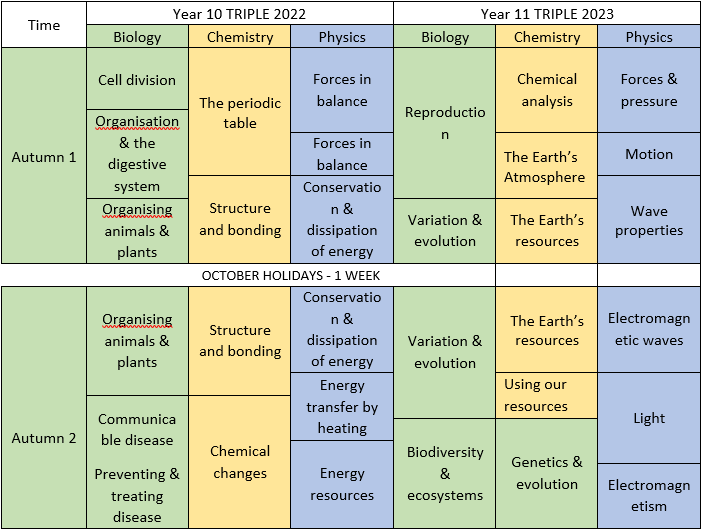
Learning journeys
